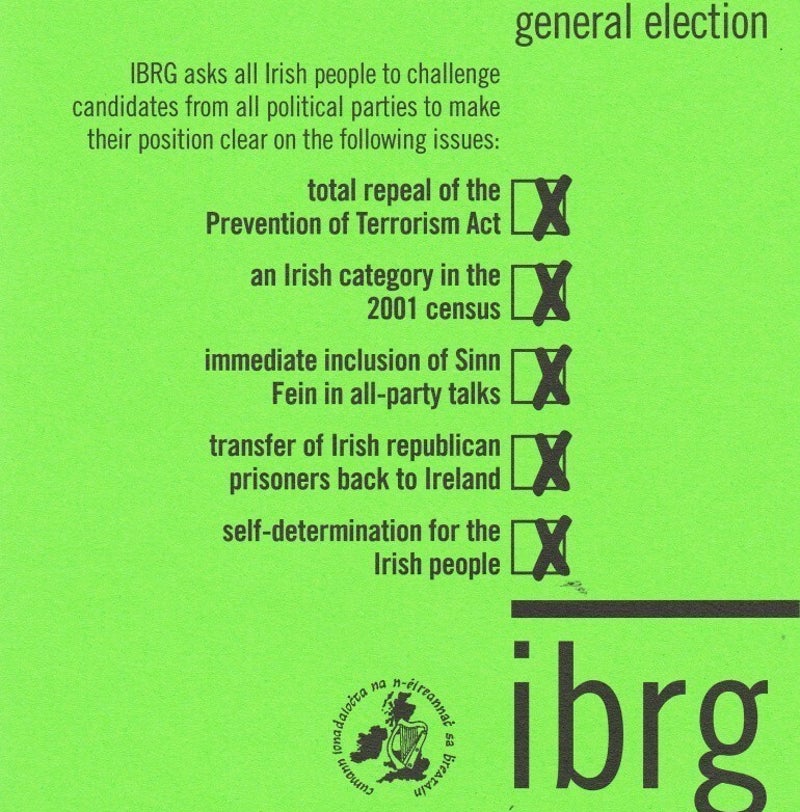The Irish in Britain Representation Group

The Irish in Britain Representation Group (1981) formed in 1981 after the hunger strikes, when ten Irish republicans died in HMP Maze/Long Kesh demanding that they be treated as special-category political prisoners. Including many second-generation Irish migrants in Britain, the IBRG sought to elevate the political, social, and cultural interests of Irish communities in Britain.
Campaigning against the ‘racist’ Prevention of Terrorism Act and ‘anti-Irish racism’ more broadly, the founders of the IBRG also took a partisan position against the British state’s role in Ireland. Moreover, they connected Britain’s ‘colonial’ involvement in Ireland with the prejudice, discrimination, and marginalisation which afflicted many Irish migrants in Britain.
The IBRG’s inaugural meetings committed to oppose the PTA, racism, and hostile media coverage of the Irish diaspora. Crucially, they also demanded a British withdrawal from Ireland. IBRG strategists wanted the Irish to be ‘recognised as an ethnic minority’ in Britain, so the extent of their disadvantage could be ‘recognised and tackled’.
The organisation also committed to fostering pride in Irish identity, and coordinated language, history, and cultural education and events to that end. By the end of 1982, the IBRG had fifteen branches nationwide, including thriving networks in Leeds, Manchester, and Merseyside.
The IBRG also attracted criticism from opponents of its republican standpoint. In 1994, for example, the historian Ruth Dudley Edwards - scorned by IBRG activists as a 'revisionist' enemy of the national project - derided the IBRG as 'dour irreconcilables' peddling a 'left-wing, grievance-laden, republican agenda'.

Create Your Own Website With Webador